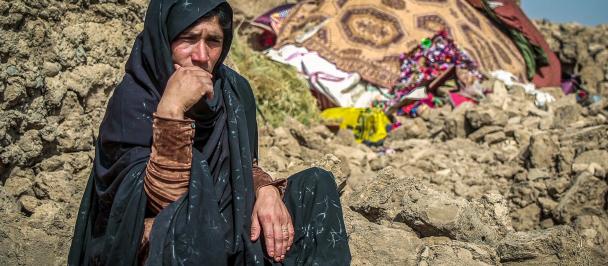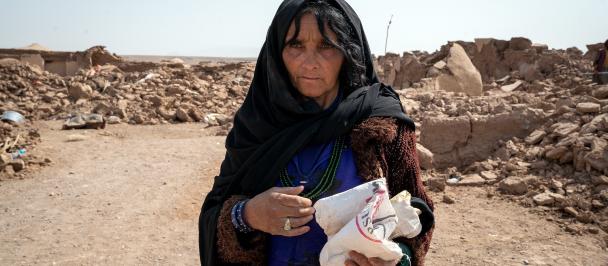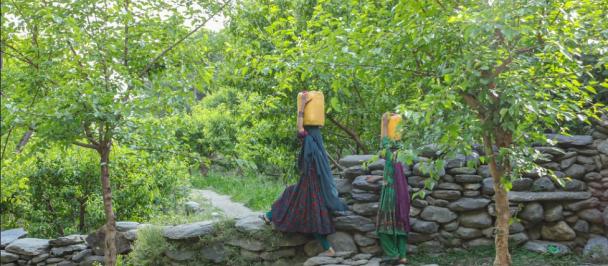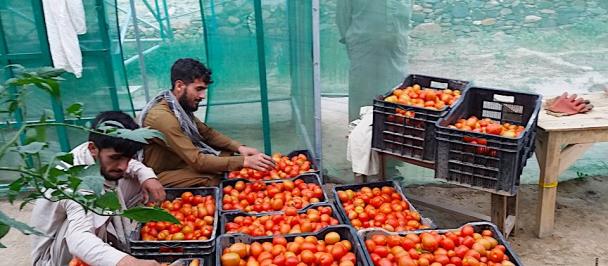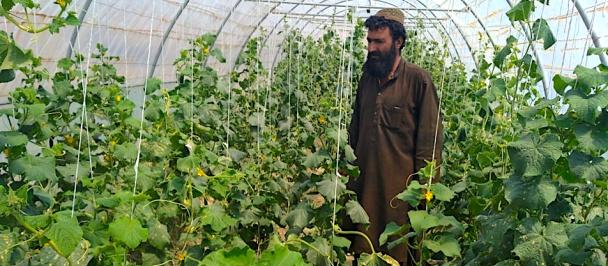Rising from the rubble: A woman’s journey to resilience
January 14, 2024
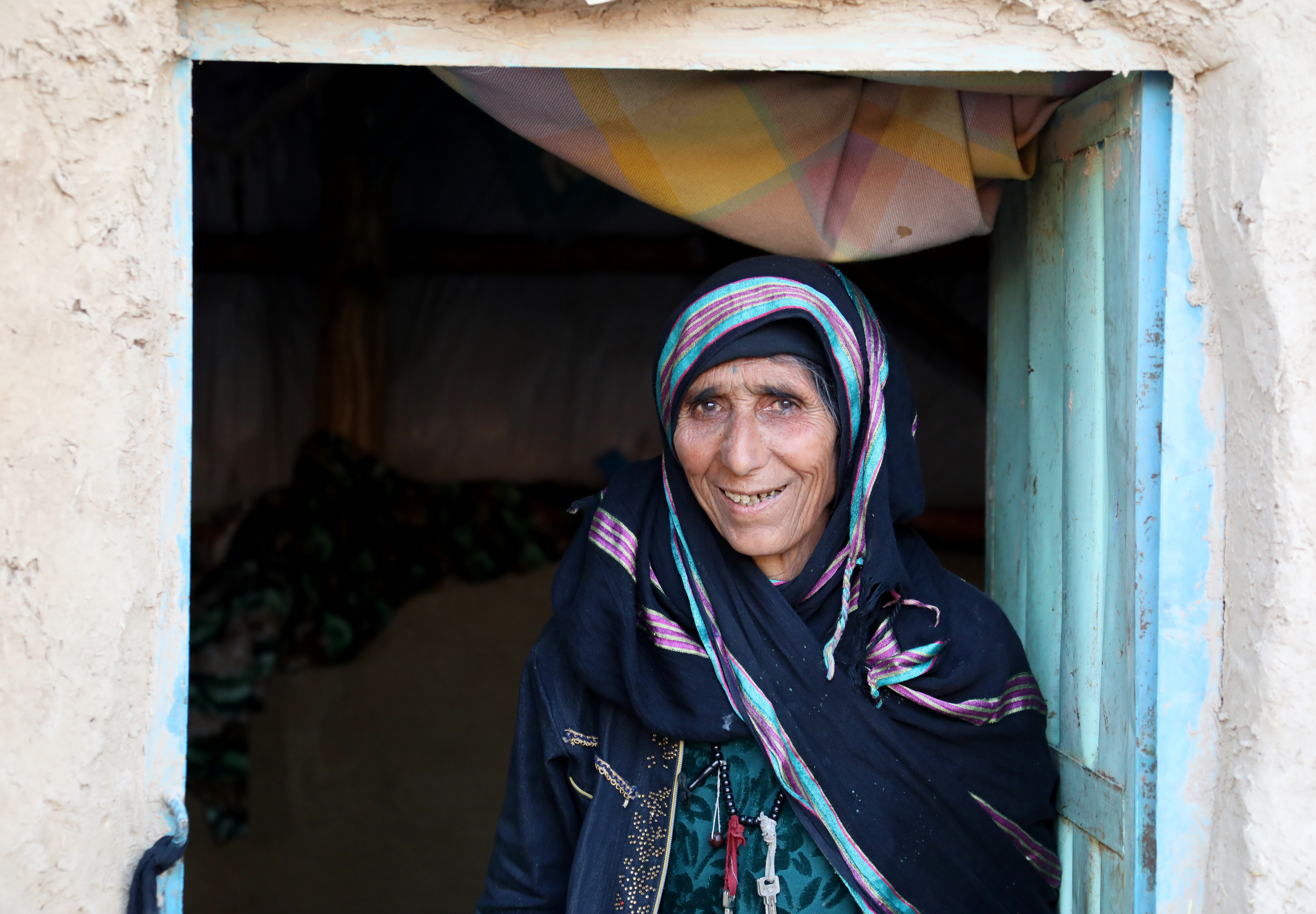
Sixty-one-year-old Fatima, Herat earthquake survivor, is the head of her family of six. They lost their home in the deadly earthquakes and had to live in makeshift shelters in the biting cold. With UNDP's support, Fatima's family has moved into safe and sturdy transitional shelters and are now hopeful for the future.
It’s been three months since a series of deadly earthquakes rocked Afghanistan’s western province of Herat. Even today, Fatima’s voice trembles as she speaks about those moments. “I cannot find the words to express the fear we felt when the earth shook. The shrieks and cries of children were deafening. The place we called home was crumbling in front of our eyes,” says the 61-year-old resident of Chahak village. Her eyes, protective and watchful, follow the playful movements of her grandchildren, who are unaware of the hardships their grandmother continues to endure.
Three years after losing her husband, Fatima found herself thrust into an unexpected role as the head of her family – a reality that is hard to reckon with for Afghan women, given the restrictions on employment and education, and limitations on movement.
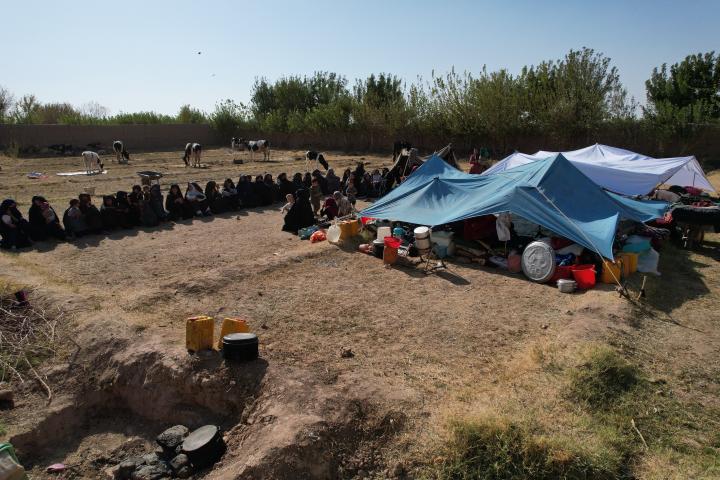
In this reality, Fatima, her widowed daughter and grandchildren, found themselves camping outside in makeshift tents made of sticks and sheets. “Men and boys can sleep anywhere but imagine the plight of women and girls. Having to live out in the open made us feel so vulnerable. We didn’t even have access to a toilet.” Like Fatima’s, as many as 68,000 women-headed households were affected by the earthquake, exacerbating their vulnerabilities.
In a mere five days in early October, three major earthquakes struck this part of Afghanistan close to Iran, claiming 2,400 people, and affecting 142,000 women. Most mud homes in the desert villages outside Herat city were flattened, marking the deadliest disaster to strike the country in decades. Over 10,000 homes were razed to the ground and over 48,000 suffered severe or moderate damage.
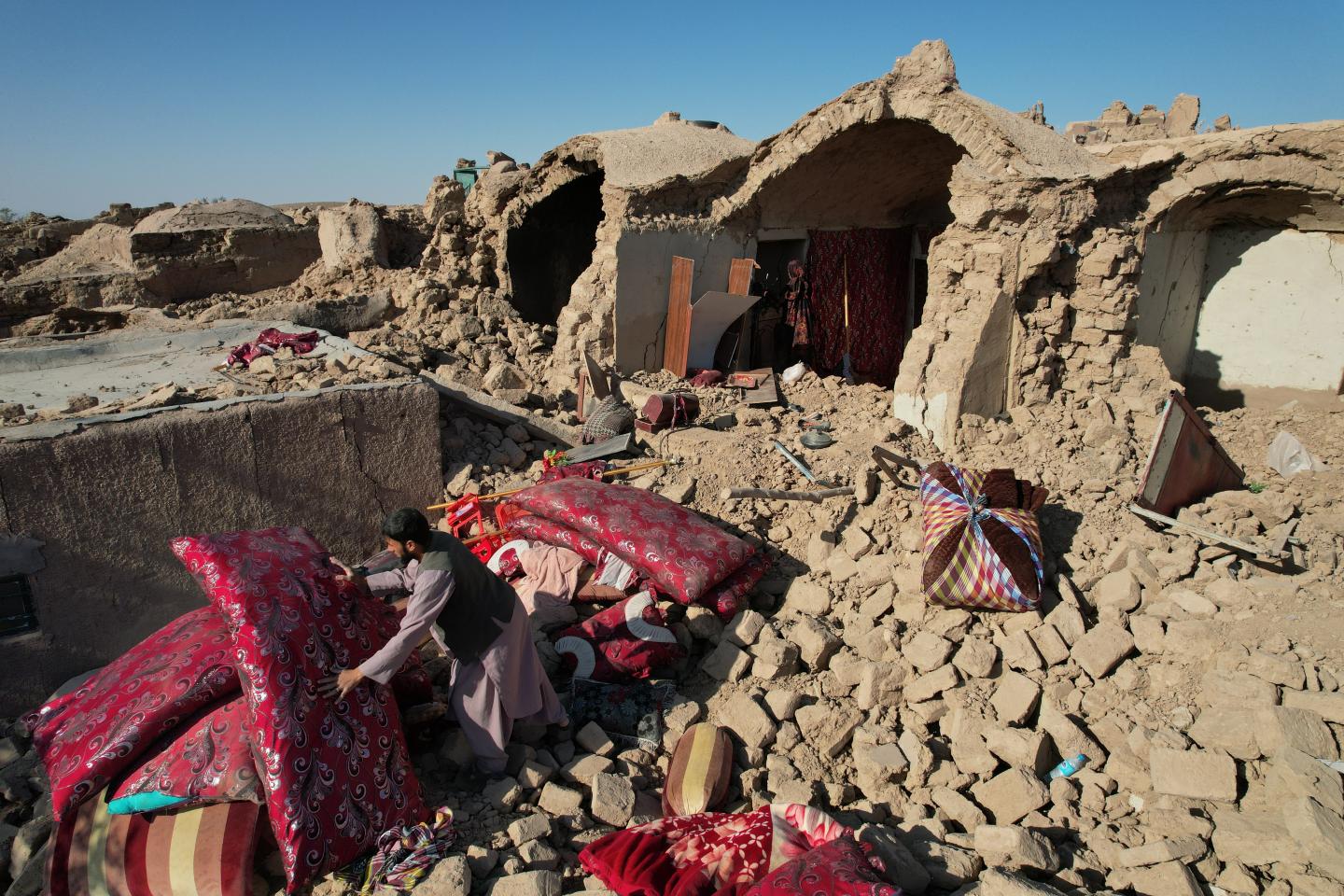
In response, UNDP, alongside UN agencies, development partners and donors, swiftly stepped in – working with the communities to address basic human needs, rebuild shattered lives, and improve community resilience to hazards and shocks. We mobilized our teams and resources to construct transitional shelters, provide free hot meals through community kitchens, and distribute and install solar cookers for sustainable cooking solutions.
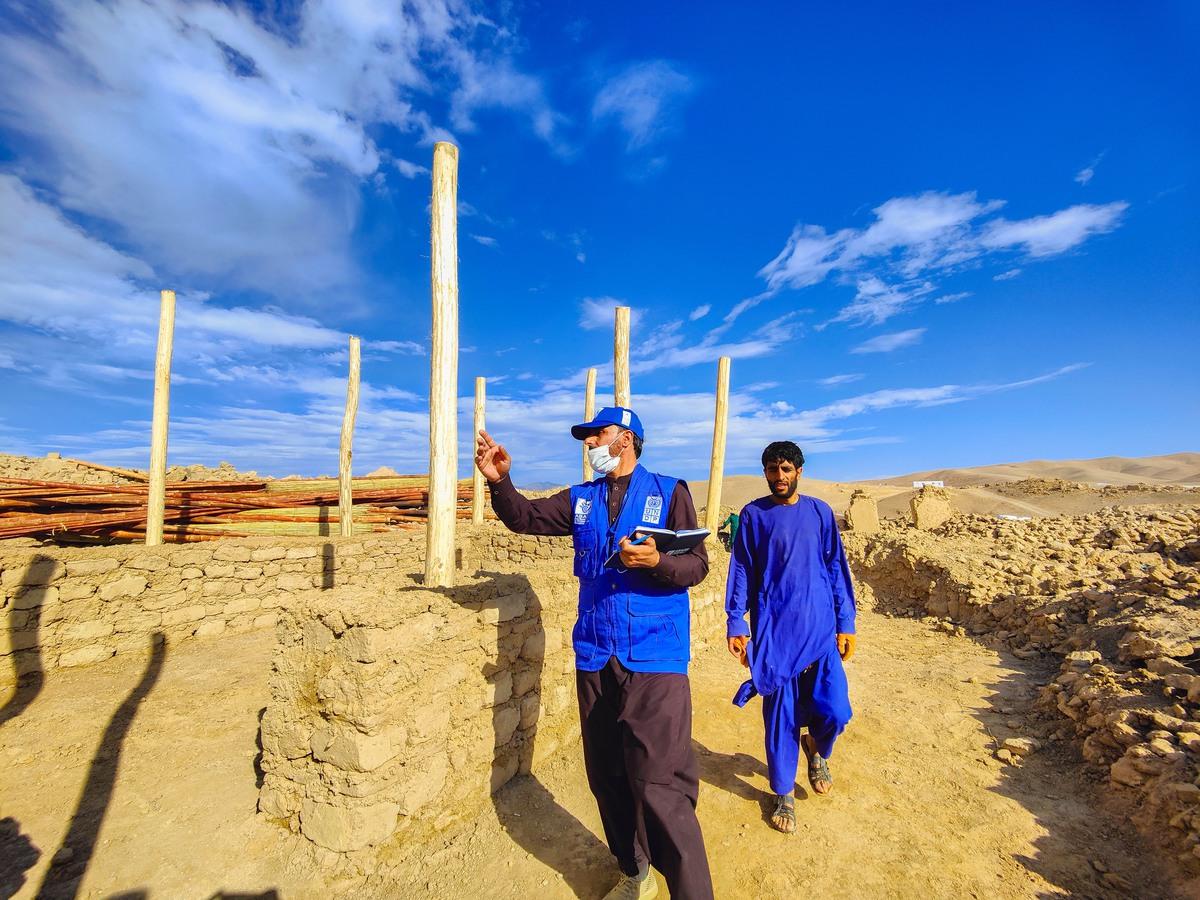
Three months post-earthquakes, over 31,000 households are still living in encampments, braving the elements in the bitter cold. With temperatures plummeting to sub-zero and biting winds piercing the walls of their tents, families are at risk of severe health complications.
UNDP, in partnership with the Norwegian Church Aid, worked tirelessly to construct transitional shelters to protect some of these earthquake-affected families from the harsh winter. In Chahak village, where Fatima lost her home, all 235 transitional shelters are now ready and over 200 vulnerable families have moved in. Fatima’s family is among them.
“I am so relieved and thankful to UNDP for providing this home for my family. These shelters are warm and sturdy. My grandchildren are happy and healthy, protected from the harsh winter,” says Fatima. As a woman, she seems at ease in her new home. “I can sleep now because I feel safe and secure.”
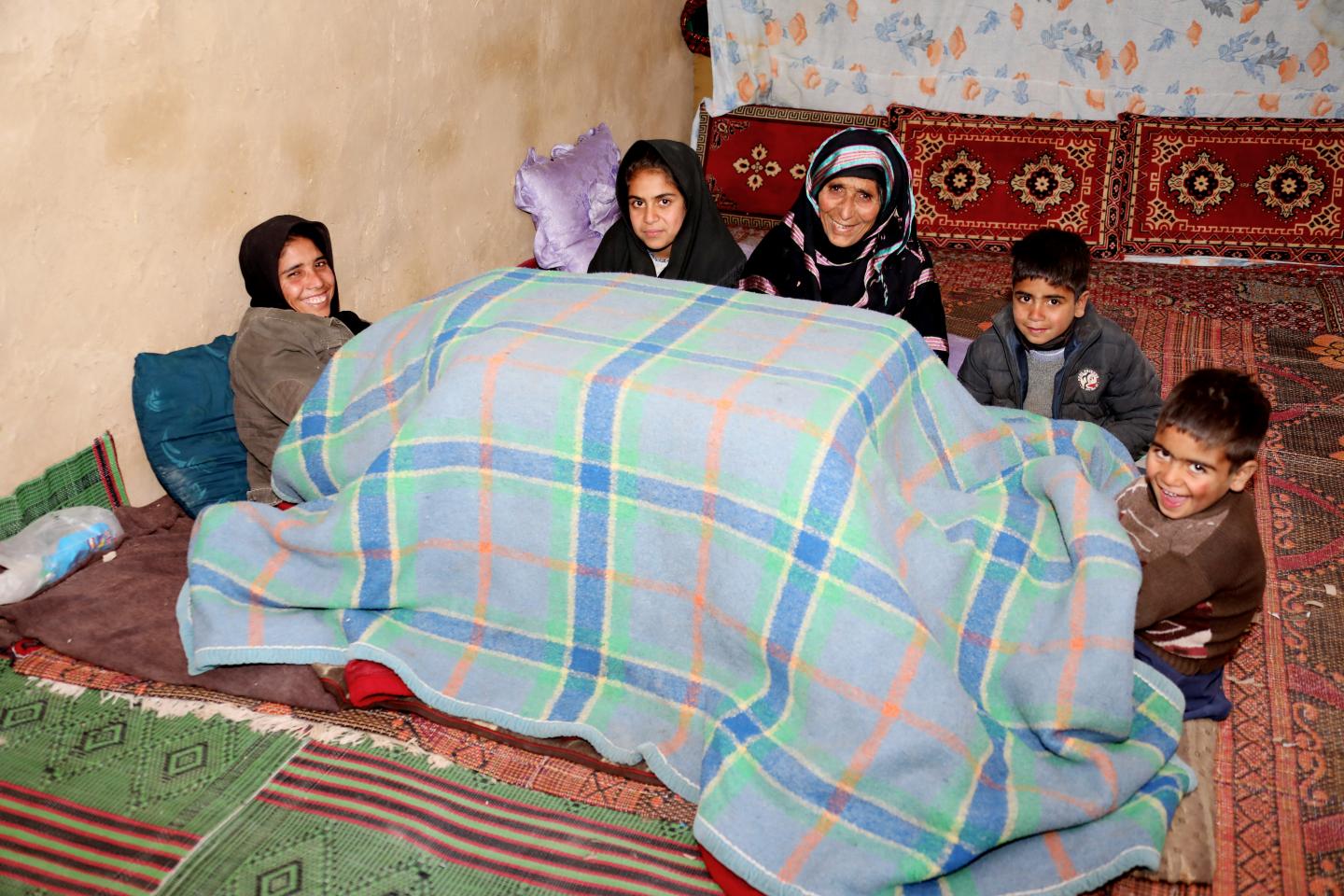
What sets these transitional shelters apart is their reliance on vernacular architecture practices—constructed from local materials using traditional methods like pakhsa (a blend of earth and straw), mudbrick, and stone masonry. These homes are disaster resilient, which means Fatima and her family will be protected from the aftershocks that continue to rattle the region.
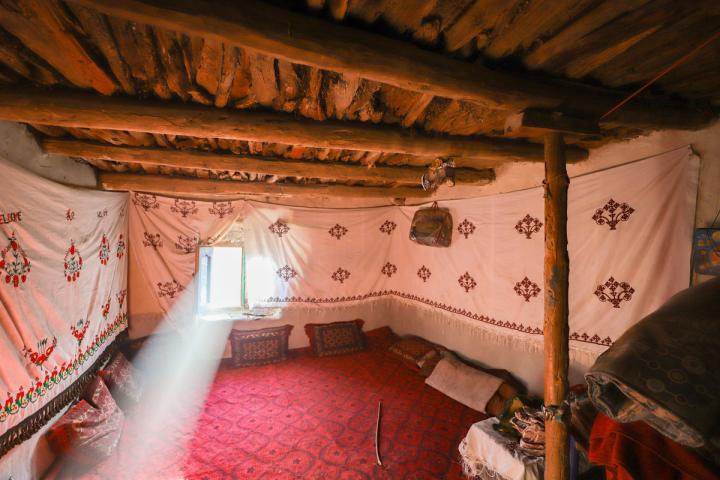
Yet, amidst the security of her new home, she is also reminded of everything she lost. “Everything was underground - carpets, mattresses, blankets and dishes. I couldn’t even salvage a piece of bread and water from the rubble. I just miss my old home and its memories,” she recounts.
Despite the challenges, Fatima is hopeful. “We still lack warm clothing, mattresses, and heating devices, but we are safe, healthy and protected from the cold. I am so happy that proper latrines are being constructed, which is essential for women.”
With all transitional shelters complete in Chahak village, UNDP will now focus on constructing permanent shelters for these families. As part of its long-term recovery plan, UNDP, in collaboration with partners and UN agencies, will rehabilitate community-based infrastructure like irrigation canals and markets, equip schools and health centers with solar energy solutions, and support jobs and livelihoods, fostering recovery with resilience.
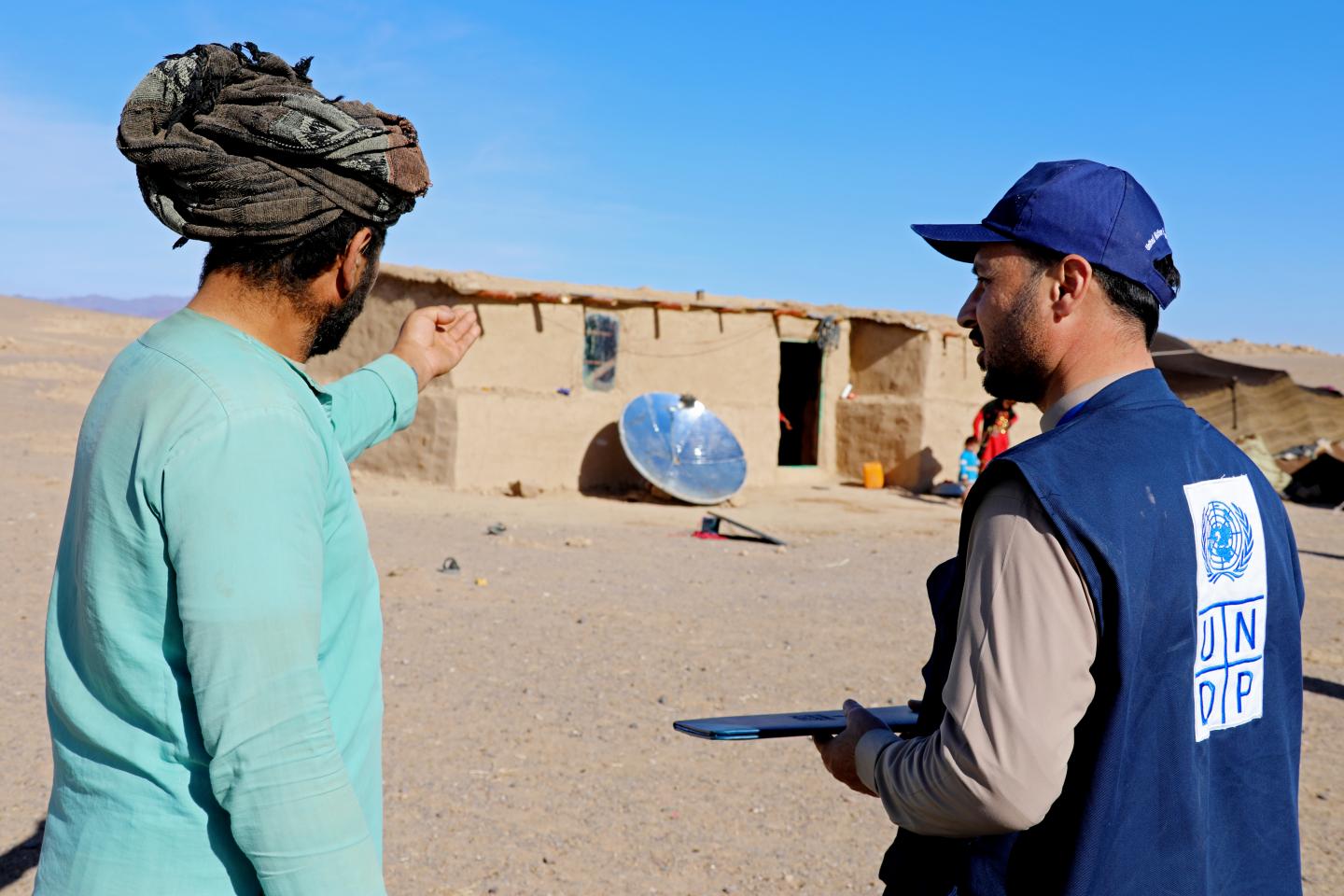
To sustain these efforts, UNDP appeals for more funding, recognizing the importance of continued support in rebuilding lives and communities in the wake of the Herat earthquakes.

 Locations
Locations